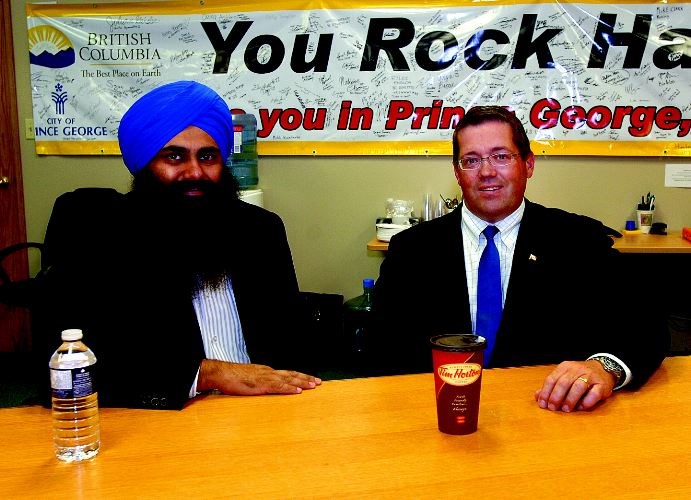Prince George-Peace River MP Bob Zimmer has been waiting for Senate reform for more than two decades, but the Conservative politician remains hopeful change is on its way.
He may have to wait a little longer.
A year after the introduction of Bill C-7, which would provide a framework for provincially-administered Senate elections and put in nine-year term limits on senators, it's languishing in the House of Commons awaiting a vote on second reading.
"Originally when I was involved in politics back in 1988, it was something we believed in back then and we still see that it's a need today," Zimmer said. "It's not just a small group of people support Senate change and Senate reform, but if you ask a large part of the population they would support it as well."
Both the government and the opposition are blaming each other for the stalemate over the passage of the legislation.
"Unfortunately the opposition continues to stall things in the house," Tim Uppal, minister of state for democratic reform, said Tuesday on a visit to Prince George. "I've asked the opposition a number of times to let it come up to a vote."
Uppal said all parties have had their chance to have their say in 20 hours of parliamentary debate over the past year and he's frustrated the NDP keeps presenting a long list of speakers every time the bill is on the order paper.
NDP critic Joe Comartin said the Conservatives could use their parliamentary majority to push the legislation through, but he believes internal divisions in the government are preventing them from doing just that.
"If they were really serious about this, this bill would have been through the house a long time ago," Comartin said in a phone interview. "The problem they've got, is they've got significant opposition within their party in the Senate to the term limits. They know this thing will have some real difficulty getting through the Senate."
Senate reform has been listed as a key priority for the federal Conservatives and their predecessor parties over the years, but after six years in government they've yet to make significant legislative changes to the institution. The current incarnation of the reform bill was first introduced last June, but has been languishing waiting for a vote on second reading which would send it to committee. It hasn't been debated since February.
The bill would do nothing to deal with regional inequalities in the Senate -- B.C. is currently allotted just six seats in the 105-seat chamber -- but Zimmer said having elected senators is more important than balancing out the representation.
Uppal said changing the composition of the Senate is off the table for the time being because the government only wants to introduce reforms that don't require constitutional amendments.
There has been a mixed reaction from the provinces to the federal government's plan which calls for the provinces to administer and pay for the elections. B.C. doesn't currently have elected senators and a private member's bill to bring them in is stalled in the provincial legislature.
Uppal acknowledged that it could take time for all the provinces to implement the new structure if the bill passes the House of Commons and the Senate.
"You're not going to have a bunch of elected senators pop up over night," he said. "It is a process, it will be a slow transition as provinces buy in, as senators retire and as these provinces hold their elections."
The transition phase has the potential of creating a divide between appointed senators and those who are elected.
"You can just see it on the floor of the Senate, 'Why should we pay any attention to you? You're just a lacky for the Prime Minister, I was elected,' "Comartin said. "A two-tiered system like that really doesn't make any democratic sense."
The NDP oppose the reform plans because they would like to see the Senate abolished.
Comartin is hoping to find away around the possible constitutional squabble that could result from that proposition, however he's optimistic the NDP would be able to get seven provinces, representing at least 50 per cent population on board. He's counting B.C. among the provinces he thinks will support getting rid of the Senate entirely.
"We're probably close to that 7/50 (threshold)," he said. "Quebec might be the one province that would be the question mark."


